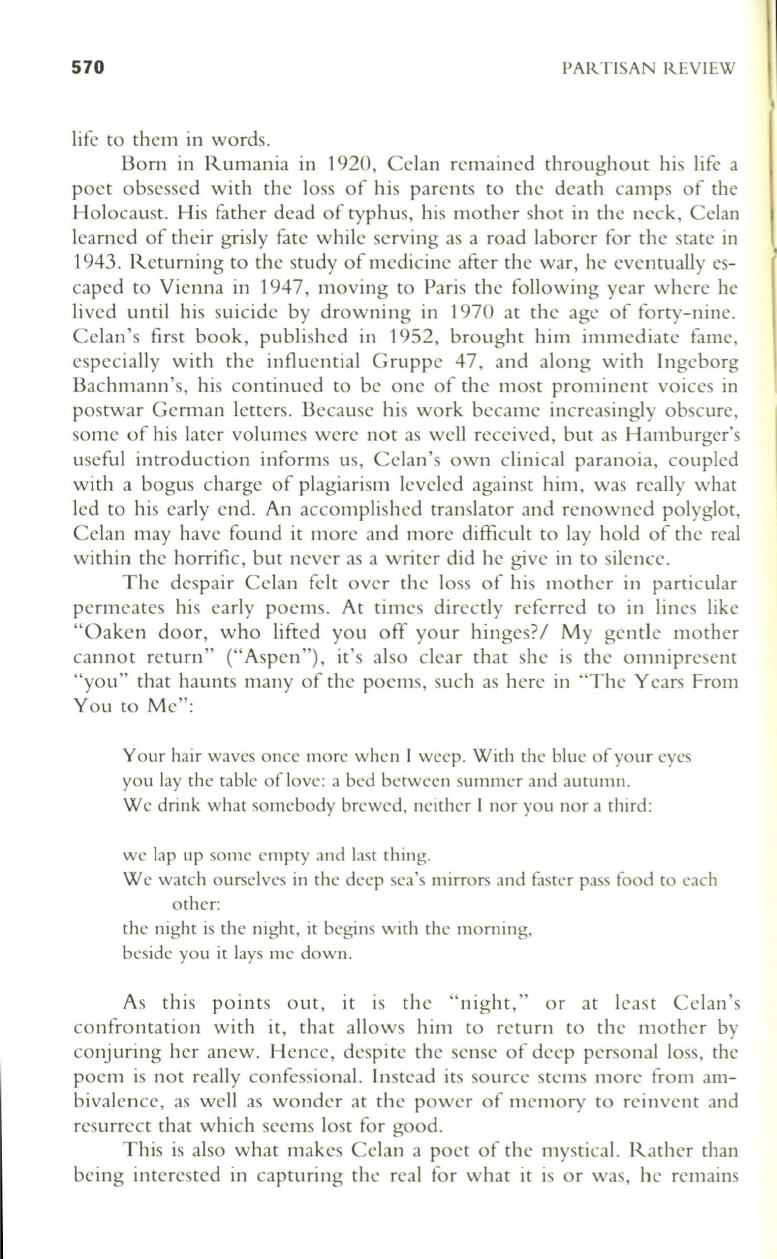
570
PARTISAN R£VIEW
life to them in words.
Born in Rumania in 1920, Celan remained throughout his life a
poet obsessed with the loss of his parents to the death camps of the
Holocaust. His father dead of typhus, his mother shot in the neck, Celan
learned of their grisly fate while serving as a road laborer for the state in
1943. Returning to the study of medicine after the war, he eventually es–
caped to Vienna in 1947, moving to Paris the following year where he
lived until his suicide by drowning in 1970 at the age of forty-nine.
Celan's first book, published in 1952, brought him immediate fame,
especially with the influential Gruppe 47, and along with Ingeborg
Bachmann's, his continued to be one of the most prominent voices in
postwar German letters. Because his work became increasingly obscure,
some of his later volumes were not as well received, but as Hamburger's
useful introduction informs us , Celan's own clinical paranoia, coupled
with a bogus charge of plagiarism leveled against him, was really what
led to his early end. An accomplished translator and renowned polyglot,
Celan may have found it more and more difficult to lay hold of the real
within the horrific, but never as a writer did he give in to silence.
The despair Celan felt over the loss of his mother in parti cular
permeates his early poems. At times directly referred to in lines like
"Oaken door, who lifted you off your hinges?/ My gentle mother
cannot return" ("Aspen"), it's also clear that she is the omnipresent
"you" that haunts many of the poems, such as here in "The Years From
You to Me":
Your hair waves once more when
I
weep. With the blue of your eyes
you lay the table oflove: a bed between summer and autumn .
We drink what somebody brewed, neither I nor you nor a third:
we lap up some empty and last thing.
We watch ourselves in the deep sea's mirrors and faster pass food to each
other:
the night is the night, it begins with the morning,
beside you it lays me down.
As this points out, it is the "n ight," or at least Celan's
confrontation with it, that all ows him to return to the mother by
conjuring her anew. Hence, despite the sense of deep personal loss, the
poem is not really confessional. Instead its source stems more from am–
bivalence, as well as wonder at the power of memory to reinvent and
resurrect that which seems lost for good.
This is also what makes Celan a poet of the mystical. Rather than
being interested in capturing the real for what it is or was, he remains


